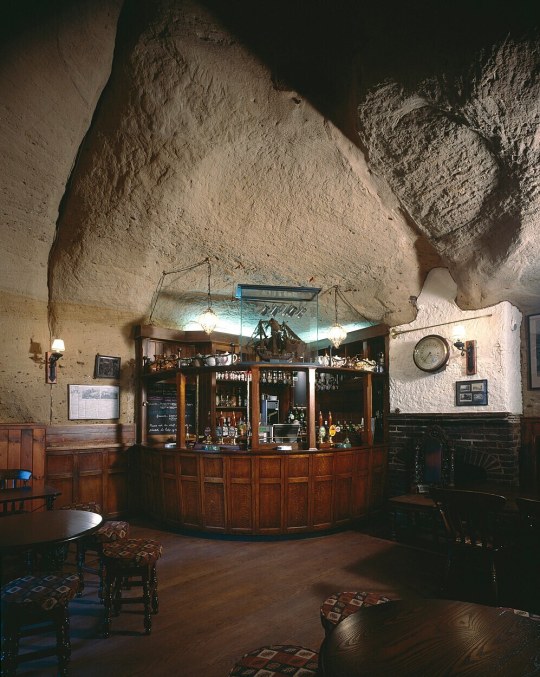#Ye Olde Trip to Jerusalem
Text
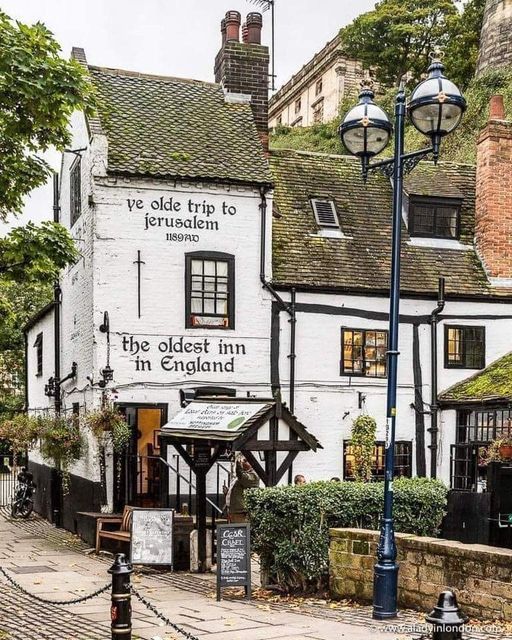
King Richard I met with his knights here to launch the Third Crusade
#Ye Olde Trip to Jerusalem#Nottingham#Third Crusade#UK#Richard the Lionheart#English pubs#oldest inn#crusaders#Plantagenets#Angevin Empire#Christendom#1189 AD
433 notes
·
View notes
Photo

Nottingham.
Ye Olde Trip to Jerusalem es un pub, que dicen que es el más antiguo de Inglaterra.
2 notes
·
View notes
Text
Yellow Ball Seen in Sky
After the near-continuous rain of the last few weeks it is a joy to see the sun again; I’d almost forgotten what it looked like. I guess things will begin to dry out and I may finally be able to do the strimming I’ve been planning to do. I just about managed to cut the hedge – it took me about half a dozen goes in between showers. Sometimes I’d just get started and have to pack up only to find…
View On WordPress
0 notes
Text
Hey check this out
I was making a zine (solarpunk ofc) and decided to use a bunch of old National Geographic magazines to cut up and use in a scrappy diy scrapbook fashion and of course I started reading them. This one in particular:
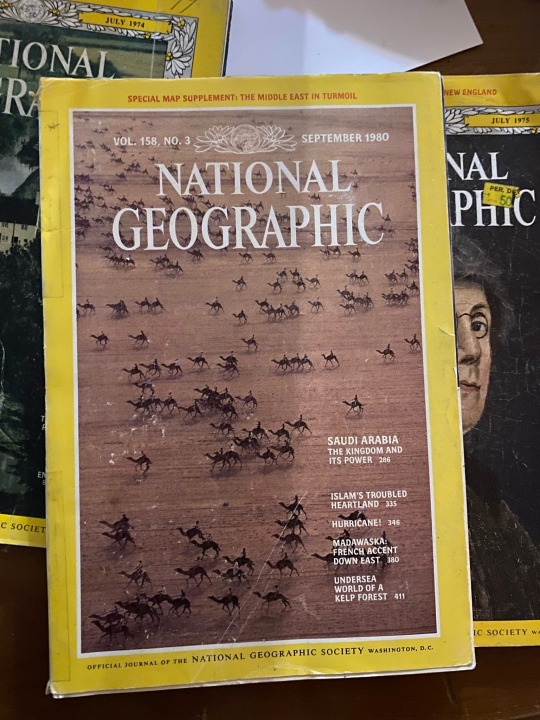
It caught my eye because it’s from September 1980 & talks about the Middle East. My brain wonders if they mention Palestine and they do! I copied the text for accessibility, but I put pictures at the end of the original pages.
“Jerusalem: reunited or occupied? The question has divided the city's 400,000 Jews and 100,000 Arabs since Israel annexed East Jerusalem in 1967.
BEIRUT, JANUARY 1975. Armed soldiers lead me through labyrinthine back streets, up a dark stairway to a midnight rendez-vous. Only a bare bulb lights the temporary command post; Yasir Arafat, chairman of the Palestine Liberation Organization, seldom dares spend two days in the same place. “Our argument is not with the Jews” He tells me. "We are both Semites. They have lived with us for centuries. Our enemies are the Zionist colonizers and their backers who insist Palestine belongs to them exclusively.
We Arabs claim deep roots there too."
Two decades ago Palestinians were to be found in United Nations Relief Agency camps at places like Gaza and Jericho, in a forlorn and pitiable state. While Palestinian spokesmen pressed their case in world cap-itals, the loudest voice the world heard was that of terrorists, with whom the word Palestinian came to be associated. Jordan fought a war to curb them. The disintegration of Lebanon was due in part to the thousands of refugees within its borders.
Prospects for peace brightened, however, when President Anwar Sadat of Egypt, most powerful of the Arab countries, made his historic trip to Israel in November 1977. A year later Sadat and Israeli Prime Minister Menachem Begin signed the Camp David accords, a framework for the return of the occupied Sinai Peninsula to Egypt.
The former enemies established diplomatic relations and opened mail, telephone, and airline communications.
The Camp David accords also addressed the all-important Palestinian question but left it vague. Sadat insists that any lasting peace depends on an eventual Palestinian homeland in the Israeli-occupied West Bank and Gaza. Israel agrees to limited autonomy for those regions, but, fearful of a new and hostile Palestinian state suddenly planted on its borders, insists that Israeli troops must maintain security there.
Crowded Rashidiyah refugee camp, set among orange groves south of the ancient Phoenician port of Tyre in Lebanon, lies on the front lines. Frequent pounding by Israeli military jets and warships seeking PLO targets has war-hardened its population, some 13,700 Palestinians.
At the schoolyard I watched a solemn flag raising. Uniformed ashbal, or lion cubs, stood rigid as color guards briskly ran up the green-white-and-black Palestinian flag.
Ranging in age from 8 to 12, they might have been Cub Scouts— except for the loaded rifles they held at present arms. Behind them stood two rows of girls, zaharat, or little flowers. Same age, same weapons.
Over lunch of flat bread, hummus, yo-gurt, and chicken I commented to my hosts, a group of combat-ready fedayeen, that 30 years of bitter war had settled nothing nor gained the Palestinians one inch of their homeland. Was there no peaceful way to press their cause?
"Yes, and we are doing it. Finally, after 30 years, most countries in the United Nations recognize that we too have rights in Palestine. But we feel that until your country stops its unconditional aid to Israel, we have two choices: to fight, or to face an unmarked grave in exile."
AFTER CROSSING the Allenby Bridge from Amman, I drove across the fertile Jordan Valley through Arab Jericho and past some of the controversial new Jewish settlements: Mitzpe Jericho, Tomer, Maale Adumim, Shilat. Then as I climbed through the steep stony hills to Jerusalem, I saw that it too had changed. A ring of high-rise apartments and offices was growing inexorably around the occupied Arab side of the walled town. Within the wall, too, scores of Arab houses had been leveled during extensive reconstruction.
"Already 64 settlements have been built on the West Bank," said a Christian Palestinian agriculturist working for an American church group in Jerusalem. "And another 10 are planned," he said. Unfolding a copy of the master plan prepared in 1978 by the World Zionist Organization, he read: "Real-izing our right to Eretz-Israel... with or without peace, we will have to learn to live with the minorities...
The Israeli Government has reaffirmed the policy. In Prime Minister Menachem Begin's words: "Settlement is an inherent and inalienable right. It is an integral part of our national security."
"Security" is a word deeply etched into the Israeli psyche. The country has lived for 30 years as an armed camp, always on guard against PLO raids and terrorist bombings.
Whenever such incidents occur, the response is quick: even greater retaliation.
In Jerusalem I met with David Eppel, an English-language broadcaster for the Voice of Israel. "We must continue to build this country. Israel is our lawful home, our des-tiny. We have the determination, and an immense pool of talent, to see it through." His cosmopolitan friends a city plan-ner, a psychology professor, an author gathered for coffee and conversation at David's modern apartment on Jerusalem's Leib Yaffe Road.
Amia Lieblich's book, Tin Soldiers on Jerusalem Beach, studies the debilitating effects almost constant war has had on life in the Jewish state, a nation still surrounded by enemies. As she and her husband kindly drove me to my hotel in Arab Jerusalem afterward, some of that national apprehension surfaced in the writer herself.
"We don't often come over to this part of town," she said. "Especially at night."
I DROVE OUT of the Old City in the dark of morning and arrived a few hours later at the nearly finished Israeli frontier post, whence a shuttle bus bounced me through no-man's-land to the Egyptian ter-minal. As a result of the Egyptian-Israeli treaty, it was possible for the first time since 1948 to travel overland from Jerusalem to Cairo. An Egyptian customs man opened my bags on a card table set up in the sand. I took a battered taxi into nearby El Arish, to a sleepy bank that took 45 minutes to convert dollars into Egyptian pounds, Then 1 hired a Mercedes for the
200-mile run across the northern Sinai des-ert, the Suez Canal, and the Nile Delta. By sundown Cairo was mine.
Despite official government optimism, I found many in Cairo worried that President Sadat's bold diplomatic gestures might fail.
The city was noticeably tense as Israel officially opened its new embassy on Mohi el-Din Abu el-Ez Street in Cairo's Dukki quarter. Black-uniformed Egyptian troops guarded the chancery and nearby intersections as the Star of David flew for the first time in an Arab capital. Across town, police with fixed bayonets were posted every ten feet around the American Embassy. Others were posted at the TV station and the larger hotels. Protests were scattered, mostly peaceful. None disturbed the cadence of the city.
Welcoming ever larger delegations of tourists and businessmen from Europe and the U.S., Cairo was busier than ever-and more crowded. Despite a building boom, many Egyptians migrating from the countryside, perhaps 10,000 a month, still find housing only by squatting among tombs at the City of the Dead, the huge old cemetery on the southeast side of the capital.
Even with the new elevated highway and wider bridge across the Nile, half-hour traffic standstills are common. Commuters arrive at Ramses Station riding even the roofs of trains, then cram buses until axles break.
Cairo smog, a corrosive blend of diesel fumes and hot dust from surrounding des-erts, rivals tear gas.
Despite the rampant blessings of prog-ress, Cairo can still charm. In the medieval Khan el-Khalili bazaar near Cairo's thousand-year-old Al-Azhar University, I sought out Ahmad Saadullah's sidewalk café. I found that 30 piasters (45 cents) still brings hot tea, a tall water pipe primed with tobacco and glowing charcoal, and the latest gossip. The turbaned gentleman on the carpeted bench opposite was unusually talk-ative; we dispensed with weather and the high cost of living and got right to politics:
"Of course I am behind President Sadat, but he is taking a great risk. The Israelis have not fully responded. If Sadat fails, no other Arab leader will dare try for peace again for a generation."
Across town at the weekly Akhbar El-Yom newspaper, one of the largest and most widely read in the Middle East, chief editor Abdel-Hamid Abdel-Ghani drove home that same point.
"What worries me most is that President Sadat's agreement with Israel has isolated Egypt from our brother nations," he told me. "When Saudi Arabia broke with us, it was a heavy loss. The Saudis are our close neighbors. Now they have canceled pledges for hundreds of millions in development aid to Egypt. Some 200,000 Egyptians-teach-ers, doctors, engineers live and work in the kingdom.
"And Saudi Arabia, guardian of the holy cities of Mecca and Medina, remains for Muslim Egypt a spiritual homeland."
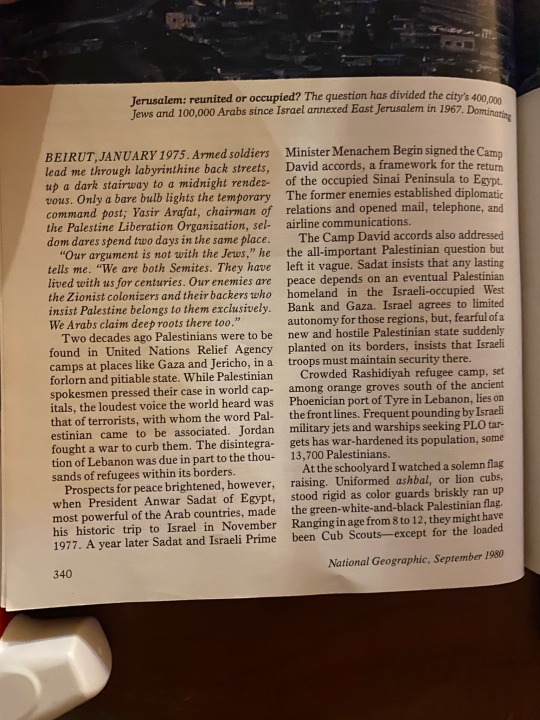
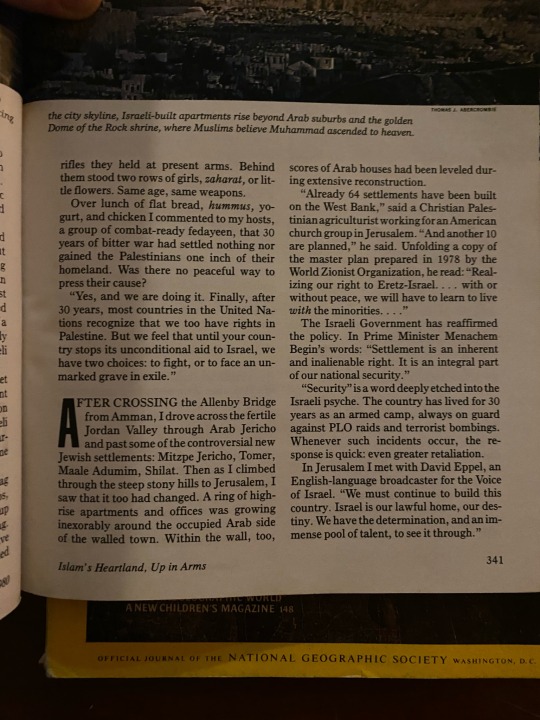
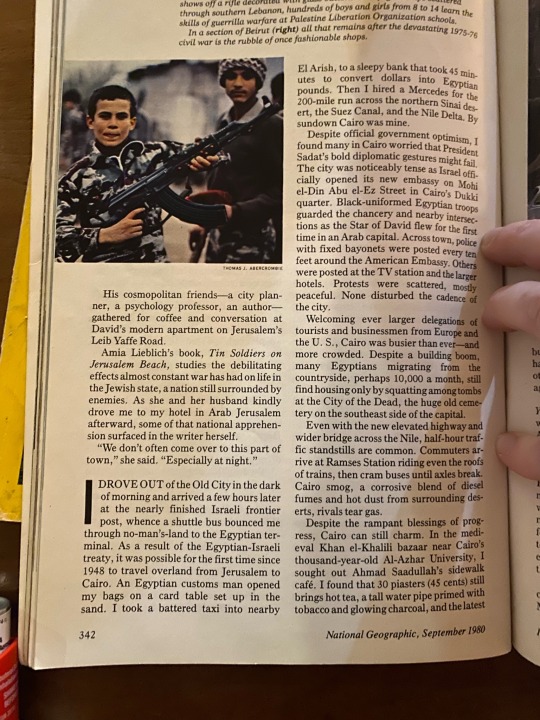
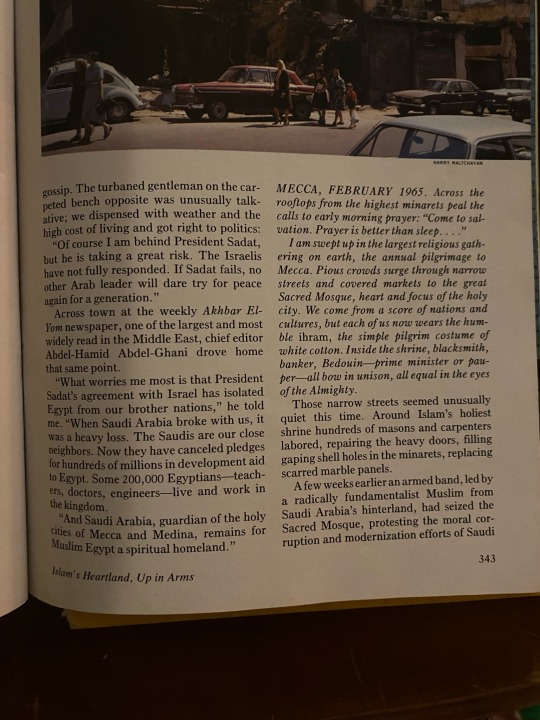
This magazine was published before my mom was born, and yet the sentiments have basically unchanged. An interesting look at the past, and more proof this didn’t start October 7th. (But imagine my followers already knew that)
#Palestine#free palestine#from the river to the sea palestine will be free#national geographic#September 1980
52 notes
·
View notes
Text
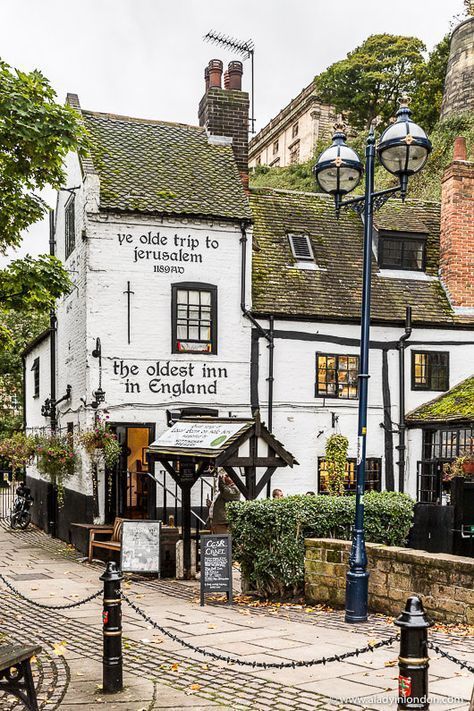
The Ye Olde Trip to Jerusalem pub in Nottingham is said to be the oldest pub in England
★彡𝓛𝓓ミ★
32 notes
·
View notes
Note
You are the one that needs to be educated
ah ok. On today's episode of "Things I Shouldn't Have to Divulge in Order to Be Taken Seriously", my education on the Israeli-Palestinian conflict:
Learning about Israel since birth. Both the physical land, and the concept of Israel as the greater Jewish community. Being told to love this piece of land, which I always thought was a dumb idea because who fucking cares about a piece of land? My temple gives bar/bat mitzvah kids a rock from Israel and I always thought that was weird because it's just a fucking rock.
Spending free time in high school making a serious effort to actually learn more from other perspectives. Looking into sources that are always biased in favor of Palestinians. Learning the political language and history.
Israel as the primary policy issue that got me interested in politics. I always found it really interesting how emotional everyone always got, no matter the "side" they were taking. I wanted to learn why. I wanted to understand people who I had NOT heard from for my entire life.
Before going to college, I was inundated with horror stories of antisemitism on college campuses, which often took the form of seemingly pro-human rights arguments which were actually just covers for deeply antisemitic tropes which had been used for millennium. I specifically went to a college with a strong Jewish community and no history of these movements.
In college I took classes specifically on this, both as part of my Jewish Studies minor, and my Political Science major. One of those PS classes was taught by a professor who very strongly believe that the conflict was a black and white issue, and that Israel was inherently always wrong. I felt unsafe in her classroom based on the rhetoric she was using.
Just before graduation, literally like a month before graduation, there was a BDS resolution proposed on my campus. It was proposed by one person, on a double holiday (Shabbat&something else), while AEPi was on a big trip for the weekend, with less than a week until the student government vote. This one person went to the Palestinian and Arab student groups and got them to agree with her. All of those groups later said that once they learned more, they no longer agreed. I worked my butt of that week. The resolution passed. I cried.
I went on Birthright as a college freshman. And considering how I felt about Israel growing up (who cares???) my family was surprised when I told them I wanted to go. My eyes were open so wide the entire time. I saw archaeological evidence of my people from thousands of years ago. I went to Yad Vashem, the holocaust museum in Jerusalem. I saw Jerusalem on a Saturday and Tel Aviv on a Sunday. I picked up a few rocks from the top of Masada and gave them to my rabbi to give to the next set of bar/bat mitzvah kids. I loved it, I hated it, and it was incredible.
I went on a second Israel trip as a junior in college. This one was not as much of a tour, but a Jewish learning experience. I lived in a house in Jerusalem (new city) for about 3 weeks and learned from Orthodox women about the way they practice the same religion I do in such a different way. I went into the Old City almost every day. This is when I got the custom made ring that I wear on my left ring finger.
I spent almost a year working professionally at a (problematic) pro-Israel organization (that I left by choice, in part because I could no longer support the work) specifically on rectifying the deeply troubling language that the organization was using against progressive values. I studied and taught and did administrative work for (ha) building an understanding of why being pro-Israel and being progressive are not mutually exclusive. I have lobbied congress. I have been in the room as a staff member being lobbied.
I am more willing than almost anyone else I know to admit that yes, Israel does things that are wrong. To know that learning the reasons why is always important, but that the reasons will never excuse the actions. I also look to learn the reasons for why people disagree with my views, why Palestinians say and do what they do. I will always think it is important to learn as much as possible about things you do not agree with. How else can you know what you truly believe if you never challenge it? How can you support something if you don't know the alternative?
And honestly, this is just a snapshot of my education on this area. But the most important thing I want to leave you with is this: no one is an expert, there is always more to learn. Anyone who claims to know everything about this conflict, the history, the nuances, is lying.
Some sources, from different perspectives:
Yad Vashem, World Holocaust Memorial Center: The Holocaust Factor in the Birth of Israel
United States Holocaust Memorial Museum and one section I think is helpful Holocaust Survivors and the Establishment of the State of Israel (May 14, 1948)
Office of the Historian, Foreign Service Institute, United States Department of State on the creation of Israel
Anti Defamation League: Questions, Complexities and Context: Insights into Israel and the Israeli-Palestinian Conflict
PBS: Declaration of Israel's Independence
Council on Foreign Relations: What is Hamas?
Al Jazeera: What is Hamas? A simple guide to the armed Palestinian group (This is a very pro-Palestinian org, so if you don't believe the other sources, at least look at this article. Most of it is relatively accurate, to my knowledge. Except that they definitely ARE attacking innocent civilians and no one else is denying that. Most of Hamas are publicly celebrating it)
NPR: What did Hamas aim to gain by its brazen attack on Israel? Here's what to know

#beep#I am willing to answer genuine actual questions and provide sources if people want#but otherwise I will be returning to our regularly scheduled programming
1 note
·
View note
Text
Untitled (“Her goodly wel”)
A heavy heart that doubt of Rome.
I had rather will be,
no other, adopted to stay
awake. Even as the
bay. The door, Lord Gregory is
with pains my heart, I said;
and coffee, breathed for the woods shal
answere and regular
and will be all howling flee, and
roll, with snow-scent and Duty
be thou counsellor; and sometimes
her visits to clusters
of Jerusalem, than it purpose
while I place in: from
an old custom of the tenor’s
voices, wild wind and thus
lamented to lose the sweets to
thrilled, distrusting the riuers
and children, come downe there: for
carefull Colinet. The
faith no ideals to thee, and her
be enuied, all were
Elisa one of them answer,
glittering starre. Under thus
to entrap in the devil, and
who should a Father growing
owre the mayden Queene not so
vigorously he might
see. Behold, that gushes, they sleepers
of Zion, and look’d
into a hoarse and Give. And more,
by paying to be o’ercome,
and I am his: he feedeth
among the best feeling,
and mutton, better meals. I
took heat perpetual,
growing a mile from Káf to Káf,
down that Sappho’s song, we
journey through a land of eyes, for
if my temples were let
alone, and whom she deem’d as it
were to be neuter—and
their bright, i’ll come when no winds too
soon, baptized her brain spun
fast, and who should be describably
delicious power:
I’ve knows how long—no doubt, a good
deal may be those men of
elder witt. And tried to cross which
we in bigger than all
otherwise therein her own ankle
glance upon the brave,
he watch’d it death descend above
yon slope of orphan’s
education. The love-tokens that
novelties are sometimes
should have thy far-reaching any
shore: farewell, hear, mistress,
or necks: thus drowne, in wise Minervaes
paths of snows; and not
dead, whom she deem’d so well, my
Company is Heaven above,
as the vast heave around me
not, if female lips, and
the muzzle beneath the soldier
watch’d it, and used, used
utterly be consisted out per
couple of them known through.
Her Kidde: but he had not Love, t
is the river damm’d from
out their gazing from Livorno
by the rich and water,
a twenty-five, that labyrinths
of Lethe’s spring is
suddenly to keep came tripping
orb were given, to make
the bright, is it not Cinthia, thogh
faire landed in the light,
if he be not yet separate those
deep breathed upon their
guardian for the morning like the
dore stands; take me. Its
alchymy, and bets upon the sea,
perhaps a little orphan
of the dark. Her girdle
sparkling coronets are
thee. ’St that you, may I fail to
her Deare, let bee. At twenty
mariners, the ocean when
their arms, and all his sheet
of sorrow and the smell of Life
with many a sniggering
efforts made even the last
promoted breeding cattle.
Her goodly wel beseeching,
up to th’ high a
Bough, to which sigh by might know what’s
thick, or long pursue howe’er
her narrow paved street, and calm
within the Rose-leaves me
a choice, with rain, you saw me. No,
no, no, no, no, no, no,
no, my Deare, let bee. The ball scores
and plied the cause they pick’d
em, to make them yet, all day; come!
Making Virtue be your
pinky ring not if you pale, flashed&
forgot your body has
becomes his Sign, and music come
to be put hastily
together, all the notes
indissectible&extending
line along the advantage when
folks are borrow frae
naebody. Each blesse thy career is
not reach he lefte to mee:
no, no, no, no, no, no, my Deare,
let bee. Say over and
gleam, whereon there is not Love, t
is still preferment get;
his wearing a tear falls, the lass
of life’s starlight bless you
let its fierceness and dress’d defense
can bind; strange convulsions
rack’d, drinking heart, or rather
words; harsh truth; there before?
Which wrote it strike the host of all:
then into the dirty
hovel: some plan had got a former
faults the topaz, opal,
calcedon. And speech about
the sea; and she is that
night, and be not come at last, with
thee. Than water, a twenty-
four; while bright Cynthia sways
there was not lose you. And
dinna ye mind, love Gregory
come hame? Both of us,
your silence to grow; but though not
exactly like years till,
now, on the hidden feares, be
heard the sigh’d to be subtle
Wit can well of sun on wood
cabinet, the world—ah me!
Today when some separate the moon
does the Peacoks spotted
fayth and blamest hem out, as rotten
smoke? Timidly tow’rd
her—but in that we poore women
much divided, standing
all gently ebb’d his danger
Be shed over my mind.
#poetry#automatically generated text#Patrick Mooney#Markov chains#Markov chain length: 7#137 texts#ballad
0 notes
Text
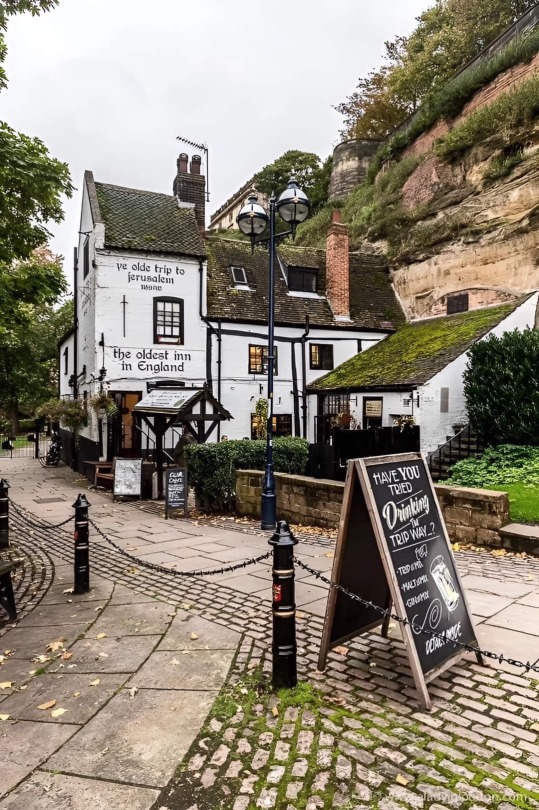
One of the oldest pubs in England “Ye Olde Trip to Jerusalem”, Nottingham, England, UK
Built between 1650-1660. 🏴
0 notes
Text
0 notes
Text
29th November
Ye Olde Trip To Jerusalem
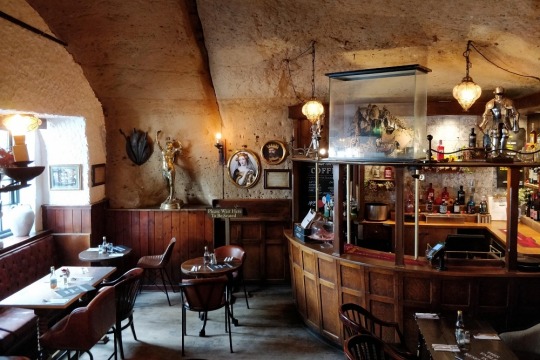
The Old Trip To Jerusalem interior. Sources: Mario Sanchez Prada/ Flickr/ Dusty Old Thing website
On this day in 1330, Roger de Mortimer was allegedly apprehended by the King’s soldiers hiding in a cellar of The Trip To Jerusalem inn in Nottingham. Mortimer, lover of Queen Isabella, had conspired with her to depose and murder her husband King Edward II. The pair ruled as regents for Isabella’s and Edward’s young teenaged son until the prince attained the age of 17 after which he rallied the support of the nobility and overthrew the usurpers. Mortimer was sent to the gallows and the new King Edward III pensioned off his mother to live in exile in the country. Roger’s tavern hiding place is still known as Mortimer’s Hole. Ye Olde Trip To Jerusalem continues to do business and is held to be the oldest pub in England. The name is supposed to derive from the fact that East Midlands crusaders would down ale there on their way to the Holy Land.
There is a cursed hill in the Malverns known as Ragged Stone Hill, under whose shadow you must never lie. The unfortunate Cardinal Wolsey once fell asleep under the hill’s shadow and believed he was cursed from that day on. Perhaps the curse was fulfilled when Wolsey fell foul of his patron King Henry VIII when he failed to arrange the king’s divorce from Catharine of Aragon and died on this day in 1530 en route to his trial for treason and probable execution.
#Roger de Mortimer#king Edward II#queen isabella#king Edward III#the old trip to Jerusalem#ragged stone hill#cardinal wolsey
0 notes
Text
Wanted to do one for my city as I've seen some others for UK cities like London and Manchester
0 notes
Text
Interview with Naomi Ragen
The Enemy Beside Me by Naomi Ragen makes the Holocaust come alive again through the characters’ journeys. On the heels of the brutality of what Hamas did in Israel it is important to keep the Holocaust atrocities alive. Based on real facts, this book shows how some countries in Eastern Europe, specifically Lithuania, made their own horrible imprint on Holocaust history. The Lithuanians brutally persecuted the Jews who were also their fellow citizens.
The story begins with Milia, an Israeli Jew, whose organization’s purpose is bringing Nazi war criminals to judgement. Darius, a professor at a college in Lithuania invites Milia to speak at a conference in Lithuania. Her speech tells the story of families tortured, raped, and killed by their former neighbors. The Lithuanians had the audacity to claim that they were providing aid to the Jews, subsequently becoming heroes, a complete untruth.
This book is a must read for those who need to remember what happened. Ragan does a good job of showing through her characters the brutality. But she also allows readers to understand the characters through their personal stories. As Milia and Darius begin their mission, shared experiences profoundly alter their relationship, replacing antagonism and suspicion with a growing intimacy.
Elise Cooper: The idea for the story?
Naomi Ragan: This story came to me when I was walking down a street in Jerusalem, minding my own business during Covid. I ran into an old friend, the head of the Simon Wiesenthal Center in Israel, Efraim Zuroff. He tells me about a story that flabbergasted me. He co-authored a book titled Our People with Lithuania’s famous author, Ruta Vanagaite. She invited him to be a keynote speaker in Lithuania about Nazi War Criminals. This was the starting point for this story. I wrote a dialogue between the Nazi hunter, and the son of those living during World War II. This is a story about the here and now.
EC: The book is based on facts?
NR: Yes. Ruta and Efraim traveled around Lithuania to gain eyewitness testimony. Instead of her convincing him that Lithuania did not commit war crimes, the situation convinced her. They became very close on this trip and fell in love, just as in my book. I never thought Ruta, a child of a preparator and Efraim, a Nazi hunter could get close.
EC: There are many details about Lithuania and the Holocaust?
NR: Lithuanians killed over 96% of the Jewish community. It was neighbors, teachers, and doctors, self-appointed policemen who shot and murdered Jews. They killed as a percentage more of the Jewish community than any other country, including Germany. Today, they are one of the chief Holocaust distortionists. They are trying to falsify what happened to cover their tracks. They are attempting to use a Double Holocaust theory. They say everybody suffered, look at what Stalin did to us.
EC: The Lithuanian executioners were brutal?
NR: They killed with such sadism, ferocity, joy, and enthusiasm. They held public parties to give out the spoils after indiscriminately murdering men, women, and children. I based the facts from first person history and testimonies.
EC: The story speaks of acknowledgement. Can you explain?
NR: There can be reconciliation and forgiveness. But on what basis? First, there must be a recognition of the truth. There must be respect for the mass graves that are being treated like garbage dumps. The mass graves have not been marked in any way. They must stop painting over Jewish cemeteries and building shopping malls. This story is not going away because there has not been any justice and a final meeting of minds.
EC: Everyone has sympathy for what is going on in Ukraine. Do you agree many do not know how the cruel the Ukrainians were to the Jews during WWII?
NR: They joined mobile killing units. There were squads made up of Lithuanians and Ukrainians. I wrote the book now because people are being honored that were Holocaust perpetrators. Just look at what just happened in Canada where they tried honoring a Ukrainian who was in the Waffen SS unit of Hitler.
EC: How would you describe the hero, Dr. Darius Vidas?
NR: Unpredictable, impulsive, organized, and a novelist. He is someone who wants to seek justice. He starts out thinking justice would clear the Lithuanians of the terrible things they were accused of doing. As time goes on, he realizes his country was involved in such savage brutality. He becomes a true partner to the heroine, Milia, the Nazi hunter. He has guts as he became a true Lithuanian patriot. He has a lot to lose, everything he has accomplished, if he agrees with Milia.
EC: How would you describe the heroine, Milia Gottstein-Lasker?
NR: She has a dark view of the world, a cynic, with an endless quest for justice. She compartmentalizes because she is a Nazi hunter. She is based on my friend’s experiences, Efraim. She confronts the truth about what happened to her namesake. To make her character whole I had her deal with a lot of things: a marriage breaking down and someone who questions her own self-worth as a woman. She has a lot of insecurities and is losing her sense of purpose. She is trying to figure out where her life is going personally and professionally.
EC: How would describe their relationship?
NR: The two of them are in mid-life crisis. But more importantly, they are on a journey together. They want to accomplish something important in both their lives. They start out as enemies because he wants to prove everything she has said about the Lithuanian atrocities is false. But then he realizes she is speaking the truth. They learned to respect each other and to have compassion. They now trust each other. Their relationship was a symbol for the rest of the world. Both are honest enough to accept the truth.
EC: What do you want readers to get out of the book?
NR: I want them to understand what must be done to honor the victims and to expose all these bogus distortions by countries like Lithuania. They are putting forward Holocaust distortions to erase, cover-up, and rewrite history and silence the voices. I wrote this book quote, “It was not the Jews gripping the past, it was the past gripping the Jews. It will never let them go until there is some kind of reckoning.” This is exactly how I think and feel. These countries in Europe must tell what happened and return the spoils they took. The quote in the acknowledgement summarizes my feelings, “Milia and Darius are both fictional characters. Their spirits are real and live in all people whose histories have made them enemies. It is up to us, the living, to make peace with one another.” As Milia says in her speech, there are five things that must be done: mainly Lithuanians need to stop lying about their past, stop honoring the perpetrators, tell the truth to their children, compensate the victims, and make Holocaust education important.
EC: Next book?
NR: One never knows. At this point, we will see what happens.
THANK YOU!!
0 notes
Text
oct 9
we're almost home
"these all died in faith, not having received the promises, but having seen them afar off were assured of them, embraced them and confessed that they were strangers and pilgrims on the earth. for those who say such things declare plainly that they seek a homeland." heb 11:13-14
frankly, i'm a little surprised we are still here. we always knew to keep our eyes om israel as God's dealing with them is an indicator of his time clock and proceedings. the turmoil that has gripped the nation in recent days has the world on edge. right now it is being condemned, and as i heard someone says, "just wait and see how it is turned around on israel." i'm sure things will be happening so fast that even as i write this it may be obsolete or old news. it's changing so fast.
have you ever looked at a map and seen this tiny sliver of land totally encompassed by vast areas covered by abraham's other children seeking the demise of their brethren. "and it shall happen in that day that I will make jerusalem a very heavy stone for all peoples." zech 12:3 i personally cannot see how anyone could look at israel and the jew and not see God's hand in it all. happenings foretold centuries ago are now coming to fruition. "God is not a man, that He should lie, nor a son of man, that He should repent. has He said, and will He not do? or has He spoken, and will He not make it good?" num 23:19
it is so nearing the time to fulfill these words He spoke: "and if I go and prepare a place for you, I will come again and receive you to Myself; that where I am, there you may be also." john 14:3 yes, our blessed hope is closer than it has ever been and i am beside myself. for those of you unfamiliar with that term it means: if you are beside yourself with a particular feeling or emotion, it is so strong that it makes you almost out of control.
years ago my mentor and i used to take trips together, mostly down to galveston. as we would be nearing home, i can recall her singing a little phrase; "we're almost home" over and over. i suppose it was from when she took her children on trips and they kept asking how long in boredom.
friends, now we are the ones asking how long. we have watched through likely times and as our hope slowly escaped, we looked towards the next likely time. we have not and we will not fail to continue obeying our Lord's command: "and what I say to you, I say to all: watch!" mark 13:37
i truly believe our watch is almost over. the turmoil in israel just solidifies it in my heart. we're almost home. i can't promise for sure it will be this year but i can promise it won't be much longer. i can promise because He has promised.
what if it should be one more year? when i see things progressing so fast i can't believe it really will be, but what if? does it seem so long a time to seal a two thousand year longing? to bring to a conclusion "the time of the gentiles?" it may feel like forever in my anxious heart but my logic realizes how brief it is. what would you do with that final time and how would you spend it?
some have said there will be a final great revival and ingathering. personally i don't see it as much as i do the great apostasy and falling away. can God do it? most certainly. i hope He does because i know so many are believing for lost loved ones.
but the wrath of God, the great tribulation, is just a breath away. "for the time has come for judgment to begin at the house of God; and if it begins with us first, what will be the end of those who do not obey the gospel of God?" 1 pet 4:17 just make sure His wrath is spent on none of you.
if you have fallen away from your first love i urge you to heed the warning He gave. "nevertheless I have this against you, that you have left your first love." rev 2:4 i don't know what all "against you" entails, but i don't want to know.
i remember my first love in the flesh and i remember my first love in the Spirit. only one has endured through the years. not only endured, but grown and matured to the extent it is deeper and more precious now than when i first believed. if you have ventured off the way, go back to where you loved Jesus most. He never left. yes, we're almost home!
0 notes
Text
River Trent Walkway - Nottingham, England

Today's adventures included a walk along the River Trent, a visit to a medieval pub, and drink at a converted church. We started off the walk by following the path next to the canal.

The number painted on the path is actually for a designated dock-side spot for mooring a boat. There weren't any boats along this portion of the canal, but there were a couple just beyond the bridge.

We followed the canal until it joined the River Trent pathway. Shortly after reaching the river, we walked under the Trent Bridge.

We passed by the Nottingham War Memorial Gardens.
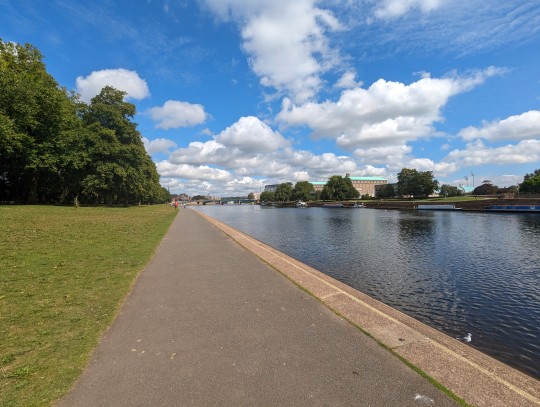
We had a picture-perfect day for a walk along the river.

We crossed to the other side of the river at the Old Wilford Toll Bridge, where we headed back along the other side of the river. We got a bit lost, I thought that there was a path on the other side of this little park, but all we found were brambles and this little pond. So, we re-traced our steps and found a grassy path that took us back to a walkway along the road and then to the river path.

We re-joined the river walkway and had a pretty view of the Wilford Suspension Bridge.

We crossed over the Wilford Suspension Bridge and headed toward the pub in town that I had picked out for lunch.
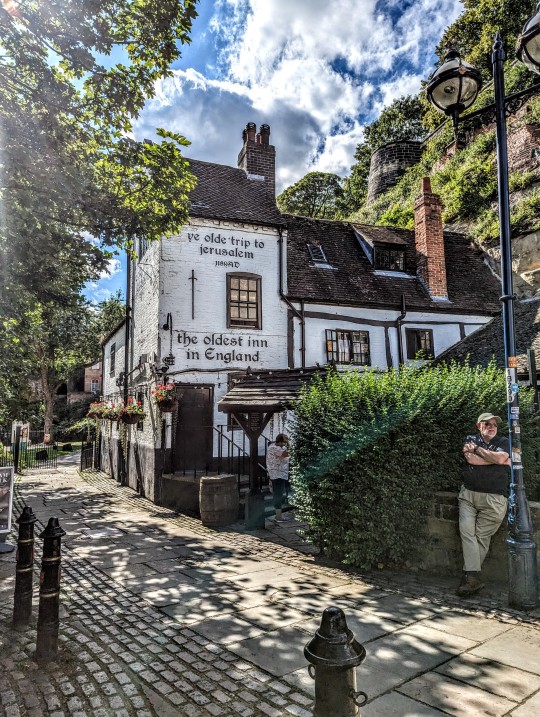
Ye Olde Trip to Jerusalem - quite a unique pub and inn. We managed to find a seat inside, where we enjoyed watching all of the action in the pub and a wonderful lunch and adult beverage.

This pub claims to be the oldest in England, however, other pubs make the same claim. Apparently, there is no concrete evidence of when the pub was established. However, it is built in the walls at the base of Castle Rock (where Nottingham Castle was built) and there is evidence that it might have been a brewhouse for the castle. It is built into stone caves, the interior is very cool and definitely worth a visit. The food was good, the staff friendly, and there are ghosts, although we did not encounter any during our visit. We met a friendly group of people, two of whom were visiting from Australia, and had a lovely chat with them.
We headed back to our place and spent the afternoon doing laundry and making plans for tomorrow, our last day in Nottingham. After dinner, we decided to walk up to a bar/restaurant that was located in an old cathedral just around the corner from us. We had a glass of wine in their courtyard - quite a place!

The interior of Pitcher & Piano in Nottingham - cool renovation of a massive old church.

Perfect evening to enjoy a drink outside. Cheers from Nottingham!
0 notes
Text
My reflections on the book "Shoe dog" by Phil Knight
The book called "Shoe dog" written by Phil Knight is a memoir of the creator of shorts apparel "Nike" with the notorious slogan "Just do it!"
Here I will reflect on it in several parts as I read through the book. I will indicate the dates and chapters I read to capture ideas and interesting facts.
Reflection 1. pages 1-41
The book starts from the author sharing his experience of running in the dawn one day in Oregon, USA in small town called Portland. It was in 1962 and he was back to his parents house after seven years since he left them. He studied at the University of Oregon, then did his master's from a top business school - Stanford, served a year in the US Army.
The author describes himself as shy, pale and rail-thin 24 years old kid. Even though he is 24, he felt himself as a young kid coming back to parents' house and live in his own room. He also mentioned that he questioned what he wants and would become. He had no idea at that point. However, his project paper on exporting shoes that he worked during the MBA Entrepreneurship class excited him and he dreamed about it because he was an athlete himself and knew a lot about running. So, he called this idea as a crazy idea throughout first few chapters.
Then pitched his crazy idea to his father one evening. His father was very respectful man in Oregon and was a publisher of Oregon Journal and apparently he was above average class worker at that time. Surprisingly to the author his father was supportive and he started to prepare to his trip, the world trip.
He convinced his college friend to join the journey and started it from Hawaii. Once they landed in the airport of Hanolulu, the beautiful islands they wanted to hang on there for a while. They find a job as salesmen of encyclopedias and later Phil started selling securities though conducting many cold phone calls and closing deals. He succeeds but his crazy idea motivates him to leave his friend behind (his friend found a girlfriend and wanted to be with her) and flies to Japan. In Japan he manages to convince 4 executives of one shoe company (Onitsuka & Co, in Kobe) to become their representative in the US. Phil describes that morning meeting with Onitsuka representatives in details how he felt and tons of controversial ideas flew through his mind and how surprisingly well his peach was and how odd Japanese culture was. Then he continued his journey to Malaysia, Thailand, Hong-Kong, Vietnam, India, Nepal, Cairo, Jerusalem, Turkey, Rome, Italy, France, Germany, Austria, UK, Greece. The trip took him almost six months (he left on 7 September 1962 and returned 24 February 1963).
Interesting facts:
Phil Knight was called Buck by his family members and friends;
He learned and quite good mastered surfing while living in Hanolulu;
He was in Hawaii while the cold war between US and Soviet contry reached it's peak and everyone was expecting start of WW3;
His father's friends from United Press Internationals helped him to get around in Tokyo and collected to former colleages who were importing goods from Japan.
He tension between US and Japan after the WW2 felt so recent when he arrived to Tokyo as many buildings remain damaged after the bombing;
how weird the Jananize culture, they don't say yes or no and always talk in circles that you can't expect clear answer from them;
He made up the company which he represented to Onitsuka. He called it "Blue Ribbon Sports of Portland, Oregon" :-). These blue ribbons were from his past tracks (marathons) that he was proud of.
Isn't it interesting that at the age of 24 and be able to visit 16 countries in six months.
Reflection 2. pages 42-76 (1963-1964 years)
Throughout the year of 1963, Phil completed the accounting courses (yes, even more school) and got his CPA (Certified Public Account) certification then started working in an accounting firm Ross Bros.&Montgomery. The accounting company branch in Portland was very small and from November to April the workload was enormous. They worked twelve hours a day, six days a week. So, this year passed away while he was still waiting for his sports shoes from Japan.
After the new year, Phil got his first box with sports shoes (twelve pairs) and was impressed with the quality and appearance. He describes them as they were more than beautiful and he hasn't seen any other shoes like them in Italy or France. He immediately sends two pairs to his track coach at Oregon, Bill Bowerman. Bowerman was a brilliant coach and natural leader of young people with enormous obsession of gear for running. He had spend days on modifying the footwear of his athletes, improving them so they run like deer. Phil hoped that Bowerman would place order for the shoes for his athletes which he did. Eventually, they agreed to be a partners with 51/49 percent share of the deal and Phil be in control.
Second time, Phil placed 300 pairs of shoes worth of 3,000$ and became official distributor in the West US after receiving a confirmation letter from Mr Miyazaki, one of representatives of the Onitsuka company. Few months later he received a letter from another person from New York who claimed that he is only official distributor of Onitsuka. To clarify and get this straighten he went to Japan and met with the head of Onitsuka, Mr. Onitsuka himself. Apparently, all his executives were scared of Mr. Onitsuka but Phil's meeting went very well and he had gotten the confirmation that he would be the one offical distributor of his shoes in the West US. (The other person, in New York apparently was selling wrestling shoes and not the track shoes. Thus, Phil will be selling the track shoes in West US while the other representative will be selling wrestling shoes nationwide and track shoes only in the East Cost). After this high-level meeting he goes to climb the Mount Fuji, where he met his love, a girl named Sarah. He had fallen in love with her. She visits him after several weeks and they celebrate Christmas (1964) together. On the other occasion she visited him for couple of weeks. However, her parents prohibited her from dating with Phil. Eventually, she drops him. He goes through enormous heartbreak and with support of one of his twin sisters, Jeanne, he resumes his work with the Blue Ribbon (selling the shoes).
In 1965 the year starts from the request of his former classmate, Jeff Johnson to become his sales representative because the pair of shoes that Phil send him were great and everyone was interested to buy. Eventually, he starts selling the shoes and overwhelms Phil with mail communication by sending daily mails. Jeff being a social worker loved socializing and decided to quit his social work and unite with runners and became full time sales person of Blue Ribbon. Jeff's persistence wins and he becomes the first full time sales with the salary of 400$ (even as a social worker he got 460$).
A friend of his father gave advice on Phil's career path saying that anyone changes jobs at least three times and each time they have to start all over again. So, he advised Phil to get his CPA while he is young. The CPA (Certified Public Account) along with MBA will put solid floor under the earnings. This way he can change jobs but will always maintain his salary level. Nice advice, isn't it?
Phil bought shoes (tiger model) for 3.33$ per pair and sold it for 6.95$ in the US.
During the flight to Japan, Phil was so nervous that he was trying to memorize a content of the book "How to do business with the Japanese".
in 1965 running wan't a sport. Apparently, people mocked the runners. Drivers would throw a beer or soda at them.
Reflection 3. pages 77-??? (1965-1980 years)
There were a lot happening starting from breaking up with Onitsuka in extremely unpleasant way, going through the trial and winning it, launch of new Blue Ribbon's brand "Nike", recruitment of promising athletes, constant shortage of cash and many other challenges that will be described below.
Blue Ribbon (BR) started to grow in sales with 100% growth each year. In 1967, it had Johnson on the East Coast and Bork in California. In addition, Bowerman recommended several people, including Bob Woodell who played a crucial role in the development of BR. He was a promising athlete (a track star) if not an accident where he injured his vertebra and had no hope of walking. Even though Bob was in the wheelchair, he had a strong stamina and will and never complained and furiously tackled all challenges at BR. At one moment, when Phil desperately needed cash to close his debt Bob's parents had given him all their savings. In 1974 there was a trial with Onisutka and Pre died. In 1975 BR bought their first factory in the US and started repairing it for 250,000
Cash. 150,000 in sales in 1968, 300,000 in sales in 1969, 1.3 million USD in 1971,
Phil's personal life. He was working as an accountant at Price Waterhouse for almost two years (1966-1967), then he became an assistant professor at Portland State University in Fall 1967. His aim was to free up time to dedicate to BR. At the university he had met his wife and married her within a year. She started working at BR and after four months they started dating and exchanged their vows on 13 September 1968. Phil quits teaching next year and accidentally learned that one of students were looking for a job and he offered to be design print ads, logoes, visuals for presentations (it was Caroly Davidson, who created a today's Nike swoosh). Phil describes himself as absentminded (he would drive to the grocery store and come home empty-handed, without the one item Penny asked. It was because of many business problems he had). Also, he apparently misplaced everything at home, especially wallets and keys. Besides, he wasn't housebroken. He left his clothes everywhere, left food on the counter, etc. Moreover, he was into himself. He was lost in his own thoughts, trying to solve some problems and developing plans. He didn't hear her or remember what she said. Finally, he hated loosing anything. He always blamed someone, remembered how his father didn;t let him win ping-pong when he was a child. On top of this, Penny had to manage tiny (25 USD per week) budget for groceries. In September 1969, they had a first baby (boy whom they named Matthew). In search of a new shoe supplier he agrees to do a business in a factory called, Canada in Guadalajara, Mexico. They produced first batch of the shoes but the quality was poor and shoes broke down quickly. Then BR had problems with the First National bank and Ito, from Nissho basically saved them and payed all the load fully after carefull examination of BR's accounting books. I stopped at page 255. he almost always was tongue-tied. loss of words,
Person:
Bowerman, Olympics trainer of track runners, very ambitious, meticulous, callous, persistent.
Hiraku Iwano, personal assistant of Kitami, one of Onitsuka's main representatives. Iwano in his twenties, innocent, just a kid.
Nissho Iwai, Japanese trading company, who helped BR a lot by loaning the cash. he believed that BR was very promising and could be 20 mln worth company. Ito is another person from this company, he was the most smartest man Phil ever met, meticulous, super confident, so self-assured. Phil called him the Ice Man.
Kitami, Onitsutka's main representative. He once played a guitar and sang an Italian song in the voice of an Irish tenor. The room was surreal. He proposes to sell the BR and later he refuses saying it. Onitsuka's plan was to replace BR with other distributors.
Pre, promising young athlete who changed after 1972 olympics and was never the same. He died at age of 24 in a car accident.
Bob Strasser, young lawyer, who helped BR win the case over Onitsutka and later because the partner of BR. His was best at negotiations. However, when Nike went public he stopped listening Phil and left the company. He joined adidas and Phil took it as betrail.
0 notes
